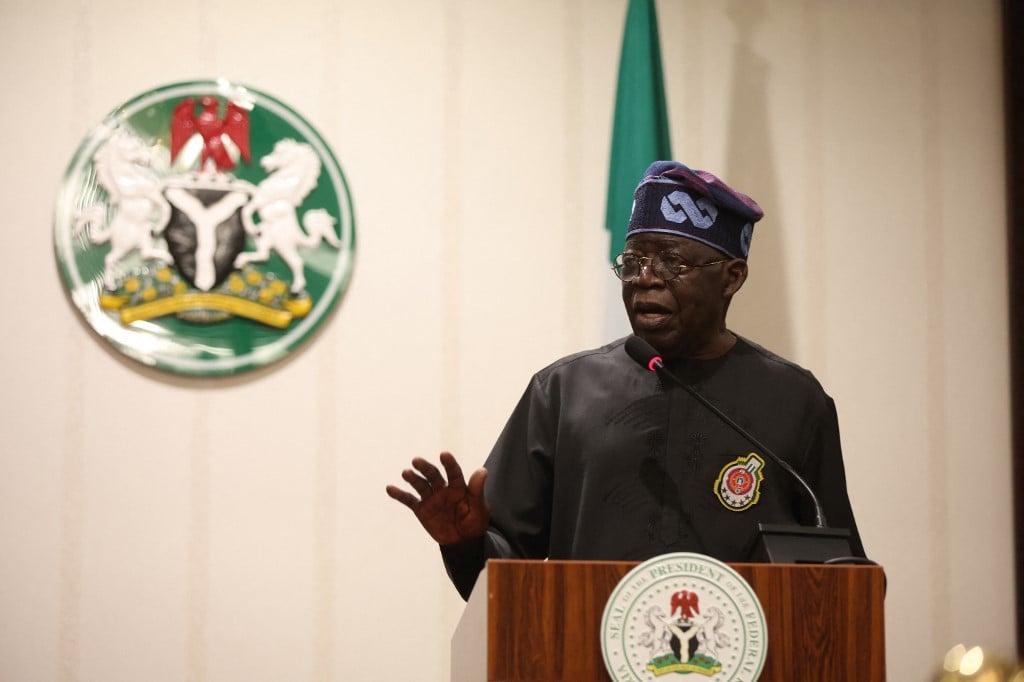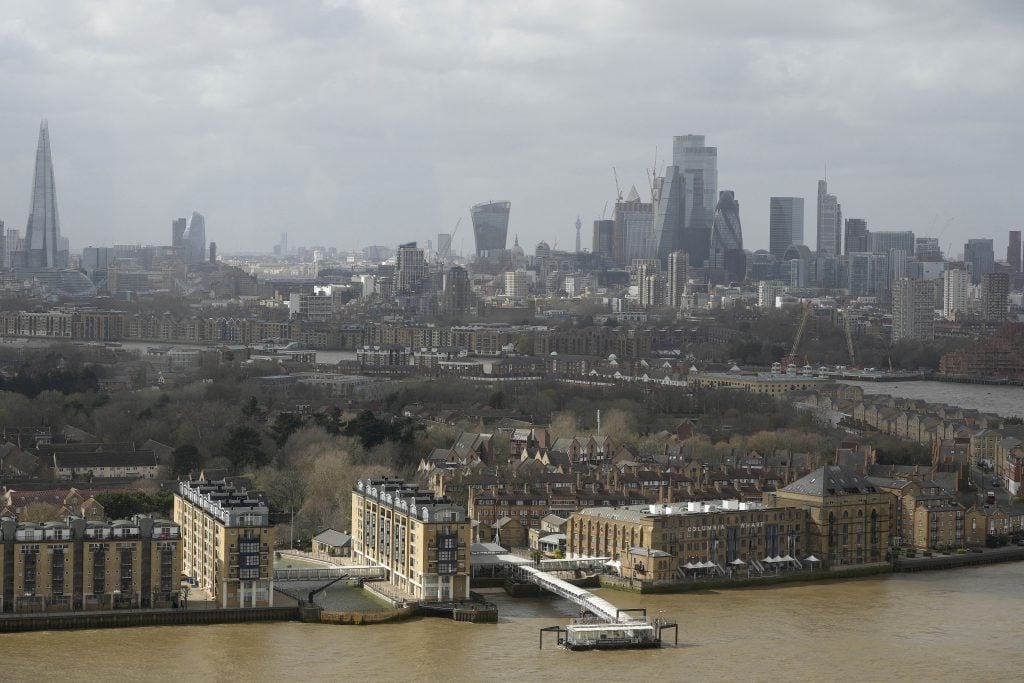
New Nigerian governments generally promise big changes – but are slow to actually implement them. Since coming to power at the end of May, the government of President Bola Tinubu has been quicker to put new policies into practice. Fuel subsidies have been removed, some restrictions on access to foreign currency lifted and plans to boost the tax-take drawn up. The new government should also benefit from some well-timed major infrastructure projects. There is a long way to go, but Abuja has at the very least made a fast start.
The mountain of challenges facing Tinubu when he came to power included a weak naira, a lack of foreign currency, high levels of inflation, continued power supply problems, low oil production, and security difficulties in the Niger Delta and in the north. The new head of state is banking on energising the economy as the foundation of its strategy, aiming to create a more investment-friendly economic environment so that it is investment rather than borrowing that drives job creation.
“The federal government is not in a position to borrow at this time”, said finance minister Olawale Edun at the end of August. At his inauguration on 29 May Tinubu promised to tackle investor complaints over double taxation and anti-investment regulation. On 14 June the Central Bank of Nigeria (CBN) ended the ban on accessing foreign exchange on the official market – and the naira immediately fell 36% against the dollar on that market.
Tinubu had pledged during the election campaign to end fuel subsidies – but many were still shocked when he quickly moved to do so upon taking power. The subsidies had helped depress transport prices and also the wider cost of goods by reducing logistics prices. However, they also cost the country the equivalent of 2% of GDP last year, with an incredible N3.4 trillion ($4.3bn) by the previous government to fund them for just the first half of this year. The president told the nation that ending subsidies would boost investment in schools, healthcare and the power sector, plus “save our country from going under”.
Cushioning the impact
The move saw petrol prices triple and triggered widespread opposition. The government responded by increasing bus provision for students, postponing school fee increases and releasing more than 200,000 tonnes of grain reserves for free distribution in order to cushion the impact on Nigerians. Nevertheless, an indefinite nationwide strike was called in late September to force a change of heart.
The trade unions suspended the strike before it started – when the government agreed to introduce income support for 15m poor households and a temporary wage increase for government workers, as well as the temporary suspension of VAT on diesel fuel.
An aim to end oil imports
The country’s entire fuel supply sector could be revolutionised, following the lifting of subsidies, by the completion of the country’s biggest infrastructural investment, the $19bn Dangote oil refinery, which was commissioned in May at the new port of Lekki outside Lagos. The project could make redundant the well-worn observation that Nigeria has to import the lion’s share of its petrol and other refined petroleum products, despite having been the biggest oil producer in Africa.
The country’s four established refineries have either operated below capacity or been out of action entirely for many years because of a lack of investment and maintenance.
The new plant is due to process 650,000 barrels (100m litres) of crude oil per day, producing 53m litres of petrol per day according to the Financial Times, as well as diesel, aviation fuel and fertiliser. Before the subsidy cut, Nigeria’s petrol consumption was 66.7m litres of petrol per day; that fell to 44.3m litres per day, the Downstream Petroleum Regulatory Authority reported on 23 October. So the plant could help turn Nigeria into a net fuel exporter, with excess output shipped out of Lekki.
Production is being ramped up over the next two years and should greatly improve Nigeria’s trade balance. The cost of the country’s refined petroleum product imports jumped from $8.4bn in 2017 to $23.3bn in 2022 and would have been on track to reach $30bn a year by 2027 had the refinery not been completed.
Currency changes
Tinubu has also intervened at the CBN, replacing Godwin Emefiele as governor with Olayemi Cardoso. The former was suspended in June and subsequently charged with procurement fraud. The CBN published audited accounts in August for the first time in five years. They revealed $19bn of derivatives commitments in 2022, meaning that its foreign currency reserves – reported to be $33bn in October – were effectively far lower than expected. That makes it more difficult to create a flexible exchange rate regime.
Abuja set out its economic plans at the Nigerian Economic Summit in Abuja in October. Finance minister Wale Edun said that domestic institutions will now be permitted to issue foreign exchange instruments to help ease foreign currency shortages. Some restrictions on foreign exchange trading have now been lifted, with bureaux de change and mobile money operators now allowed to trade currency on the official market.
The government and CBN allowed the official naira exchange rate to weaken against the US dollar, raising hopes of longer-term convergence between the official and black market rates – but the black market rates have since also fallen. There is still a big gap between official and illegal naira-dollar exchange rates, and investors are still struggling to obtain US dollars. As a result there was a $7bn backlog in demand for foreign exchange at the CBN in early October.
In June, the World Bank forecast that ending fuel subsidies and reforming the foreign exchange market would jointly save Nigeria up to N3.9 trillion ($4.9bn) over the rest of this year. Alex Sienaert, World Bank lead economist for Nigeria, said that the reforms “stop Nigeria from going over what you might call the fiscal cliff. They really set the stage for a new and an upward trajectory in terms of Nigeria’s development path.”
Abuja announced its planned 2024 budget on 16 October. It expects to spend N26.01 trillion ($34bn), based on an average oil price of $73.96 per barrel over the year, about $15 lower than the price in late October 2023. Debt servicing will account for N8.25 trillion ($10.7bn) of this budget.
More may be needed to bring inflation under control: it stood at 26.72% in October, the highest rate for 19 years. The government forecasts a rate of 21% next year.
Reform is needed to restructure the Nigerian economy and lift long-term growth rates: the World Bank forecasts GDP growth of just 3.3% this year and 3.7% in 2024. Tinubu has set a target of achieving economic growth of at least 6% a year across his term of office.
Credit ratings agency S&P Global Ratings responded to the first months of Tinubu’s administration by revising its outlook on Nigeria from negative to stable. “Nigeria’s newly-elected government has moved quickly to implement a series of fiscal and monetary reforms, which we believe will gradually benefit public finances and the balance of payments”, it said in a statement in August.
Tax reforms
Taiwo Oyedele, Tinubu’s advisor on tax reform, said in October that the government would simplify the country’s tax structure by cutting the number of federal and state taxes from more than 60 to fewer than ten, reducing the number of tax collection agencies in the process. “The more taxes you have, actually, the less revenue you collect,” he said, “because it just creates the opportunity for leakages and some non-state actors collecting money and keeping it to themselves.” Constitutional changes would be required to clarify which level of government – federal, state or local – should collect which tax, he said.
The revenues of almost all African governments are severely impaired by relatively low levels of tax collection. The new Nigerian government is therefore working with the Market Traders Association of Nigeria on measures to collect VAT from informal traders, including a digital platform that traders can access using new identity cards to track their turnover for tax purposes.
In a statement the Federal Inland Revenue Service (FIRS) said that the partnership would help “curb the activities of touts, miscreants and self-imposed tax collectors involved in illegal tax collection in Nigeria’s market spaces”. Nigeria’s tax take currently stands at about 10.8% of GDP, according to FIRS. As a result just 47% of this year’s federal budget will come from government tax revenue.
In July Tinubu announced the creation of an Infrastructure Support Fund to finance health, education, transport, power and water projects – though details of where the money is to come from are still to be fleshed out. The fund “will improve economic competitiveness, create jobs and deliver economic prosperity for Nigerians”, a government spokesperson said. The shortcomings in national infrastructure are a big brake on economic growth, so it will be interesting to see how much money is on offer and which areas are prioritised.
Investment in key sectors
Functional national power generating capacity stands at about 5 GW, roughly the same as 20 years ago. In theory there is 12.5 GW of generating capacity but much of it is unused or underused because of gas shortages. Boosting investment in new power plants, as well as transmission and distribution infrastructure, will require subsidies to be lifted here too. However, work on building the new 1,350 MW Gwagwalada independent power plant began near Abuja in August. GE Vernova and the China Machinery Engineering Corporation are developing the project in three phases, in partnership with the Nigerian National Petroleum Corporation (NNPC). This project and two others further north will collectively provide 3.6 GW.
The government plans to set up a state-owned mining company to be called the Nigerian Solid Minerals Corporation. It will seek “partnership investment agreements with big multinational companies worldwide to leverage on the attractive investment-friendly regime operating in the country to secure massive foreign direct investment for the mining sector”, Henry Dele Alake, the minister of solid minerals, said. The existing National Iron Ore Mining Company is expected to become part of the new company.
At the same time the government is to require foreign mining companies operating in the country to process output within Nigeria, to ensure that the country retains more of the economic benefits of the value chain. The policy could be particularly directed at the lithium industry, as African countries compete to secure elements of the electric vehicle battery production chain.
The oil challenge
One of the government’s biggest challenges will be turning around the long decline in oil production. The poor security situation and oil theft in the Niger Delta have seen established oil companies divest many assets, curtail exploration investment and reduce new project development. Crude output has fallen from a peak of 2.5m barrels per day in 2005 to under 1m this April – less than that of Angola, which has had production struggles of its own to contend with.
Various initiatives have been launched by Nigerian governments over the past 20 years, but none have achieved long-term success. Unless oil production can recover, the state-owned NNPC may be unable to supply the Dangote refinery from its share of output from production-sharing agreements with international oil companies. The refinery may therefore need to import oil, undermining much of its potential economic benefit.
Tinubu has pledged to set up a new surveillance unit to protect oil pipelines in the Niger Delta and to set up anti-terrorist special forces to fight Islamist militants and other armed groups further north. Improving the security situation over an extended period could reinvigorate investment in the Niger Delta; but that would take an extended period to feed through into higher oil production. Here again, improving the wider economic prospects of the Delta – and not just those allied to the oil sector – is perhaps the best method of calming tensions in Nigeria’s oil-rich south.






Recent Comments